MPs have been debating whether to lower the voting age for local council elections to 16 years of age from the current age of 18.
Debate on lowering the voting age immediately followed debate on a Declaration of Inconsistency. That stems from a Supreme Court ruling nine months ago that voting laws are inconsistent with the Bill of Rights Act on the basis of age discrimination.
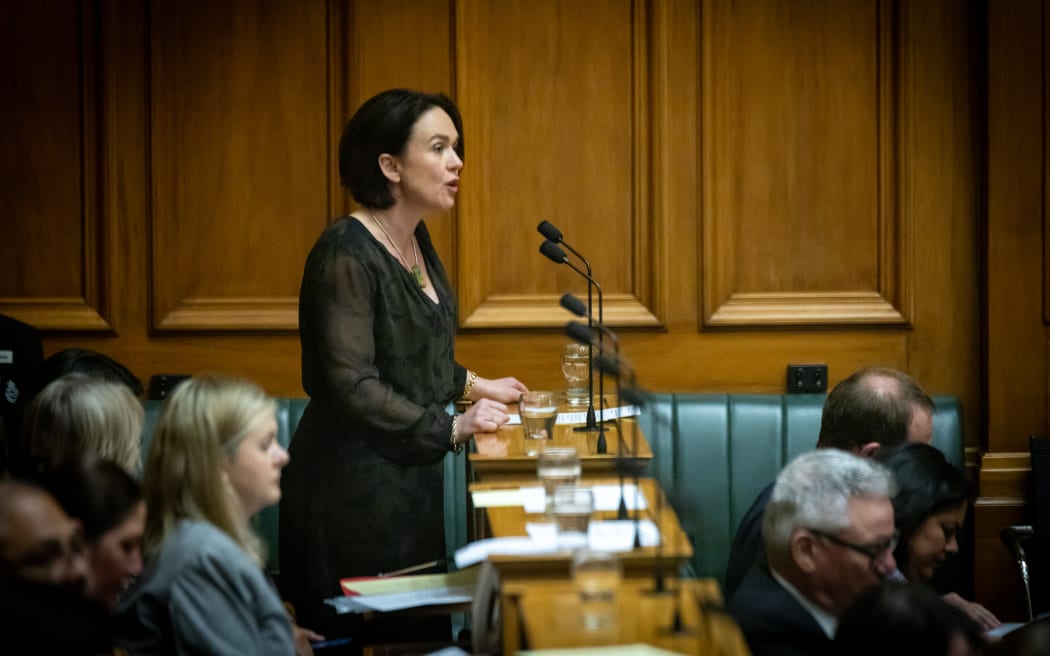
Ginny Andersen talks Police during Question Time in Parliament's Debating Chamber. Photo: VNP / Phil Smith
As a response to that court ruling, the Justice Minister Ginny Andersen this week explained why the Government has decided to focus on lowering the voting age for local elections only.
"The bill reflects the differences between how the voting age is set out in legislation. The provisions of the Electoral Act that set the voting age at 18 for parliamentary elections can only be amended if 75 percent of members in the House agree or there is a majority in a referendum."
Andersen said that preparing and progressing a bill that would have no prospect of being passed into law at this point would be a waste of time and money "that would not lead to any practical change".
"In contrast, the voting age for local government elections can be amended by a simple majority. That is why the Government has decided to focus on a bill that lowers the voting age to 16 for local elections only. I hope that members will take a rights and evidence - based approach to the future debate on this bill. We stand here as representatives of all our constituents, not just the ones that are eligible to vote for us," she said.
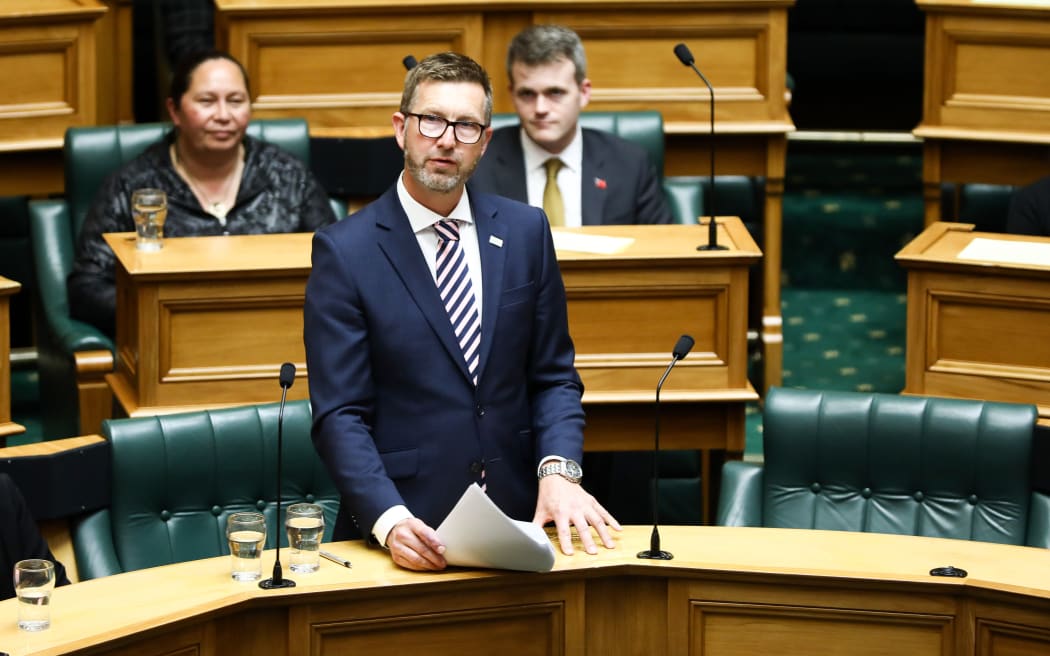
Simon Court Photo: RNZ
This was the first time that this Parliament debated a Declaration of Inconsistency between legislation and the fundamental rights in the Bill of Rights Act. Last year Parliament unanimously agreed on what should happen when one of the higher courts find legislation to be inconsistent with fundamental rights. They declare an inconsistency - and Parliament and the Government need to go back and discuss that.
Court balance
As the ACT Party's Simon Court pointed out, Parliament makes laws and is sovereign in its decision making. According to him, inconsistencies with the Bill of Rights Act were not uncommon and that "much legislation is introduced to Parliament that is not consistent with the bill of rights".
"Where it is inconsistent, the Ministry of Justice provides a report to Parliament, called a bill of rights assessment. A bill of rights compliance report is often provided where a piece of legislation infringes on rights that are set out, but for good reason, but it's always up to Parliament to balance what that reason is," Court said.
Dozens of teenagers were in the public gallery to observe this debate, and the ACT MP wanted to explain to them why their Make it 16 campaign should not distract them from what he believes teenagers should be focussed on.
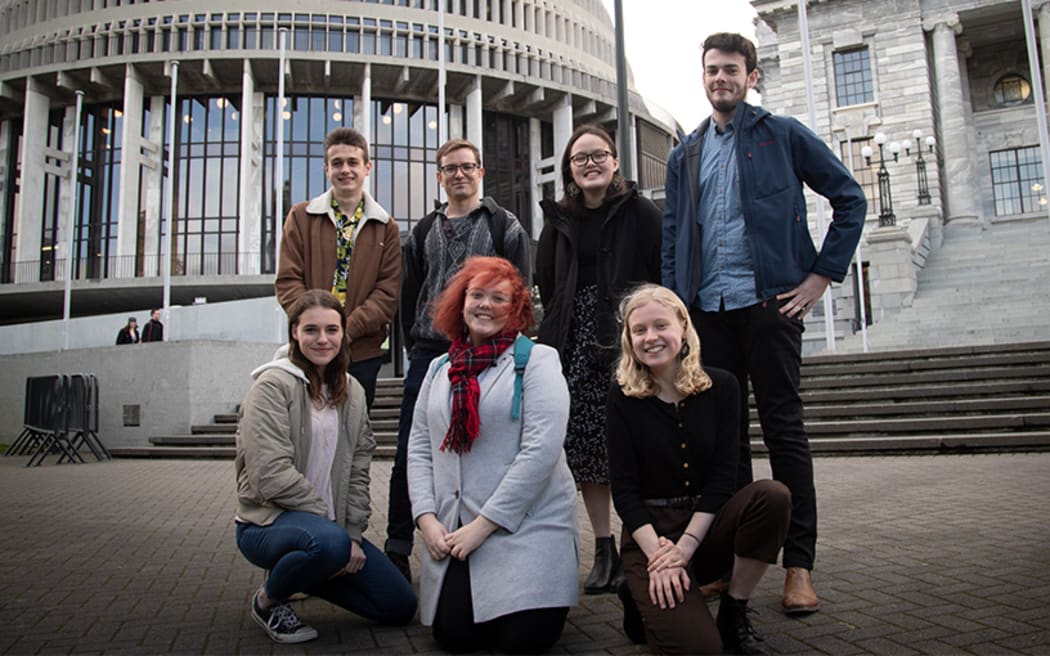
Make it 16 members outside parliament Photo: Hannah Grun
"There are a number of reasons for that. It's because, firstly, 16-year-olds, ACT believes, have a whole lot of other things that they should be focused on with their lives, such as study, work, sport, community life, community work, and that voting in parliamentary elections is something that can reasonably be delayed until you reach the age of 18 without any risk of infringing your rights in any great way."
Priorities
National’s Paul Goldsmith outlined his party’s stated objections to changing the voting age, saying a line had to be drawn somewhere and that for them 18 years old was the right point.
"My second objection to all this is around the Government's priorities and what it says of the Government's priorities, because this is broadly in the justice space. It also integrates with the local government space. And the point I've been making is: one week, the final week of Parliament, when in the broader justice sector, we've got real problems with violent crime.
"Thirdly, you've got very long delays to justice wherever you look, and people's lives have been on hold for years. There are real, massive challenges, and instead of focusing on that effectively, this Government wants to have all these officials working away on the complicated arrangements in electoral law and spending the next few months trying to figure out how to effectively reduce the voting age and hearing the thousands of submissions," Goldsmith said.
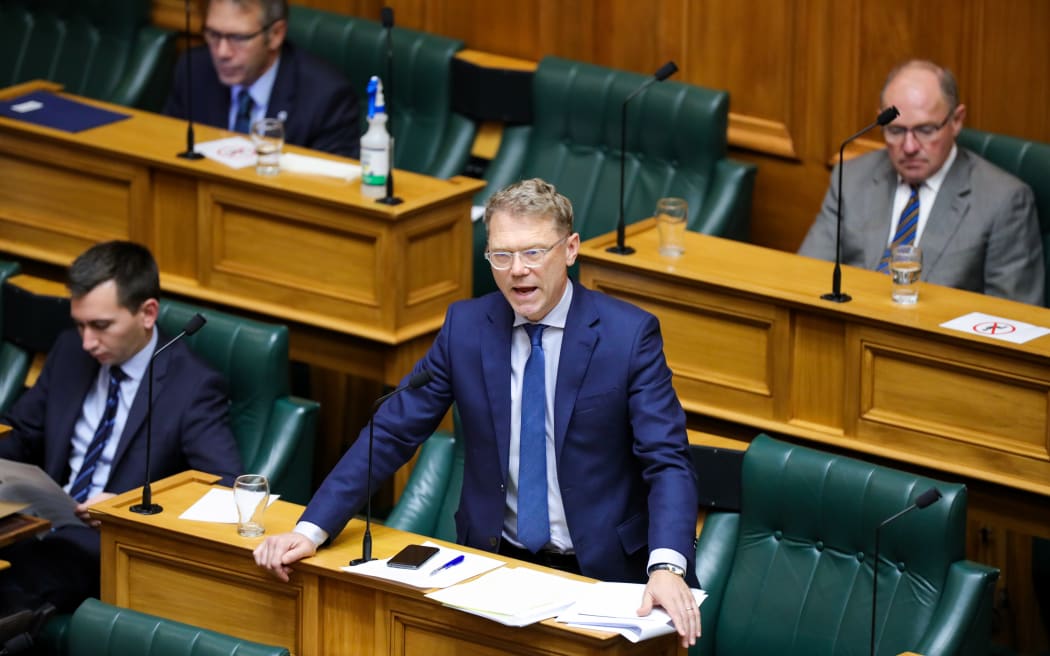
Photo: VNP / Daniela Maoate-Cox
Strengthening democracy
The Green Party MP Golriz Ghahraman said that the thought of denying someone’s fundamental right to vote - which she described as arguably the right that underpins fulfilment of all our other rights - was “absolutely wild” to her. She said the inconsistency must be addressed urgently in order to strengthen the country’s democracy for generations to come.
"We celebrate New Zealand as the first nation to give women suffrage. And I do want us to remember that the same arguments were raised against women's suffrage: women lacked expertise; women could busy themselves doing something else that would benefit democracy. In the end, it was only when we could truly vote that Governments and Parliaments became accountable to us as women," she said.
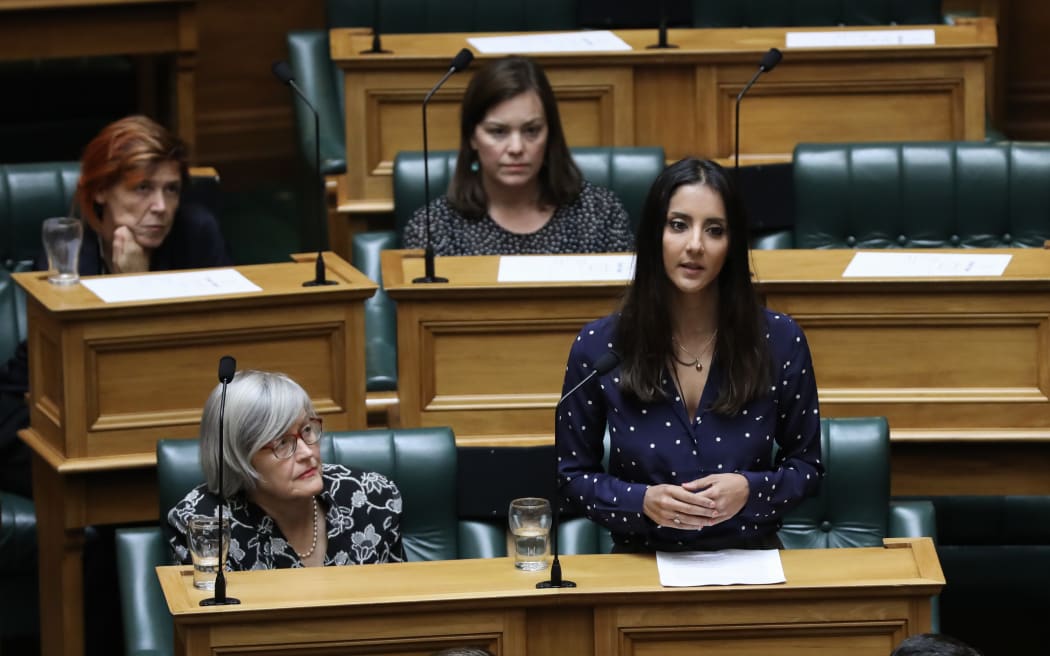
Green MP Golriz Ghahraman in the House Photo: VNP / Phil Smith
Ghahraman noted that, presently, 16-year-olds can leave school, have sex, drive cars, work and pay tax, but are "without representation".
"Not one of us would stand for a delay on our fundamental rights, not least to vote, for two years after a Government or a Parliament is put on notice that they are breaching that fundamental rights."
The Bill passed its first reading, 74 votes for and 44 against, with the National and Act parties being those to oppose it. It will now go to select committee who will invite the public to make submissions for MPs in the next parliament to consider.

